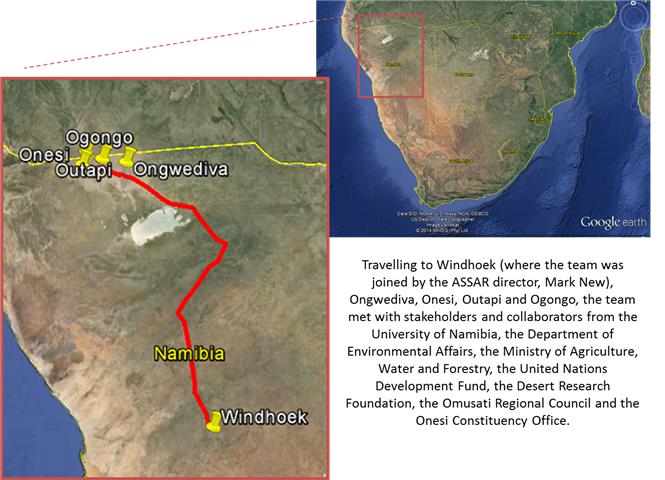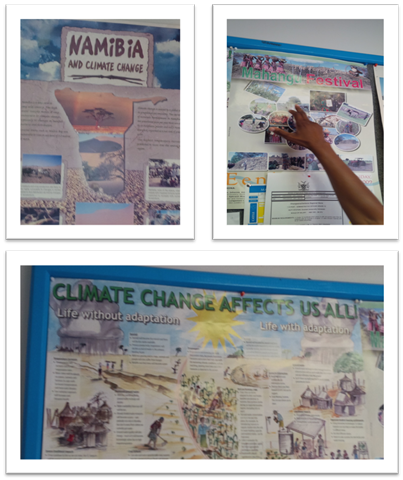News from Namibia
A common criticism of research projects is that they exist in a vacuum, and lack consideration for how to put the research findings into practice. To avoid this, and to ensure that the project yields tangible, practical and actionable value, ASSAR is endeavouring to develop comprehensive ‘research-into-use’ strategies across its regions. These strategies are something that the Southern African Team kept high on their agenda during their recent field trip.
Within ASSAR, the Southern African team focuses on the semi-arid areas of Botswana, Namibia and South Africa. Their mandate is to work with local experts and stakeholders to identify factors that will help people adapt to climate change in ways that support their livelihoods and ensure their wellbeing.

To get this work off the ground, in November 2014, Dian Spear, Salma Hegga and Margaret Angula drove some 2375 km through the semi-arid landscapes of north-central Namibia. Their goals for this trip included understanding the needs and interests of critical stakeholders from governmental and non-governmental fields, and figuring out how to work together – throughout the project life – to ensure that these needs are met.

Through these meetings the ASSAR team was able to develop their existing collaborations, forge links with new stakeholders, and identify stakeholders to reach out to in future. In the process they developed a better understanding of the context and status of climate change adaptation in Namibia. They also learned more about the perceptions, roles, concerns and needs of different stakeholders at different scales, from constituent levels, to regional and national levels.
From a strategic point of view, the team also became aware of the importance of following appropriate protocols when conducting work at multiple scales and with multiple and interconnected stakeholders. Lastly, and very importantly, the connections that the Southern African team developed with the Namibian stakeholders helped to identify potential pathways for putting their research into use, and making sure it has practical value.

With three years of research ahead of them this trip marks only the very beginning of the Southern African work process, yet it was critical for obtaining early support for the project by the people who matter most. As the team continues on its journey we will continue to document their activities, successes and challenges. Watch this space!
Written by Tali Hoffman